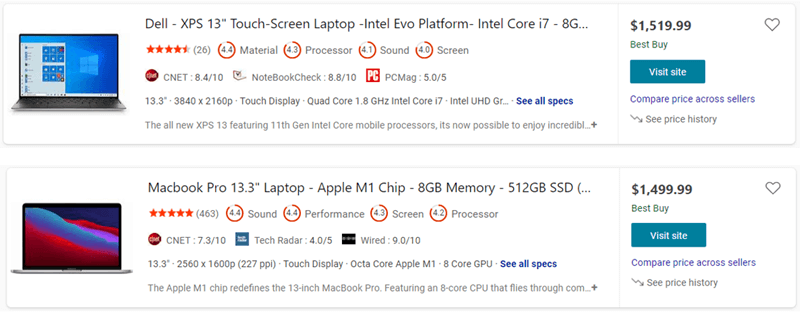Bing’s new shopping features emphasize comparison shopping
The updated interface helps it reach parity with Google Shopping, but both search engines are looking to provide users with features and data that Amazon doesn’t.

Clicking on the details within a shopping result takes the user to Bing’s detail page for that product (shown below). There, users can compare buying options, check out the price history, see excerpts from expert reviews and view product specifications.

Why we care. These at-a-glance features may facilitate comparison shopping between products. Historical pricing data may also help users make buying decisions as well as inform marketers of how competitive their pricing is. In addition, these updates help Bing reach parity with (and in some regards, surpass) Google’s shopping search capabilities.
Over the last few years, and especially since shifting consumer behavior due to the coronavirus pandemic resulted in an e-commerce boom, Bing and Google have dedicated more resources towards building out their shopping capabilities. Although Amazon remains the most dominant platform in the sector, Bing and Google are providing users with more comparison shopping features, such as the ability to sign up for alerts when prices drop.
For Bing and Google, it’ll take a critical mass of these features to make them serious Amazon competitors. And, even if the search engines achieve this, Amazon is likely to maintain its position as the market leader due to its Prime subscription benefits, among other factors. However, success for the search engines doesn’t look like what it does for Amazon — if they can create better shopping experiences and save customers money (through features like the aforementioned price drop alerts or price comparison tables), then they can attract more users and sell more ads.
